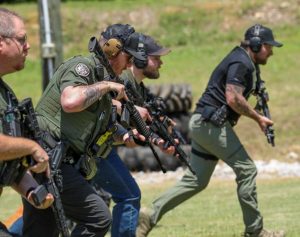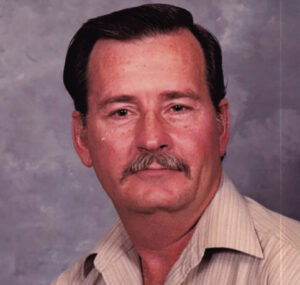Fentanyl’s deadly presence surges locally, threatens marijuana users
By Michael Wetzel
For the Enquirer
When Morgan County sheriff’s deputies raided a house in Hartselle this past Friday, they reported seizing 18 grams of fentanyl. That’s about the weight of seven pennies, but it’s enough fentanyl to kill about 9,000 people.
This synthetic opioid has become a growing danger locally and nationally, according to authorities. Some users turn to fentanyl-laced drugs to provide a more euphoric effect, and dealers mix it with other drugs to increase their potency — sometimes with buyers unaware.
According to the Centers for Disease Control and Prevention, an estimated 105,752 Americans died from fentanyl-related overdoses in the 12-month period ending in October, the latest figures available. The deaths set a record and were up from an estimated 69,000 deaths a year earlier.
The CDC stats show 1,232 Alabamians died in 2021 from overdoses, up 28.33 percent from the 960 reported in 2020.
Morgan County Sheriff’s Office spokesman Mike Swafford said in addition to the increase in the number of overdose cases, a surge in the amount of fentanyl being found is startling. He said Morgan County sheriff’s deputies seized 96.4 grams of the drug in the 16 months from Jan. 1, 2021, through Thursday, an average of about 6 grams per month.
That was an increase of 727 percent over 2020, when the department seized an average of 0.825 grams monthly.
Swafford said habitual drug users appear to be most impacted by fentanyl trafficking and overdoses.
“It is not the teenagers but those a little older, maybe late 20s into their 40s, from what we’ve seen,” Swafford said. “One arrested drug user told us, ‘Fentanyl is all that works for me. Heroin doesn’t do anything for me any longer.'”
Pharmaceutical fentanyl is a synthetic opioid approved for treating severe pain, often in advanced cancer patients, according to the Drug Enforcement Administration and medical experts. It is 50 to 100 times stronger than morphine. It is prescribed in the form of transdermal patches or lozenges and occasionally is diverted to illegal use.
Law enforcement experts, however, say most fentanyl bought on the streets is illegally made and then mixed with heroin, cocaine, methamphetamine or even marijuana. They say 2 grams, about the equivalent of an artificial sweetener packet on a restaurant table, is enough to kill 1,000 people.
Local coroners don’t have complete statistics on fentanyl-related deaths, but Morgan County Coroner Jeff Chunn said he recorded five overdose deaths from Feb. 20-28, and at least two of them involved Decatur victims and fentanyl.
“For the entire month of February, there were nine suspected overdose deaths (in Morgan County), and at least three were in Decatur and involved fentanyl,” he said.
In Lawrence County, Sheriff’s Office Chief Deputy Brian Covington said the narcotics unit seized 192 grams of fentanyl in the past 12 months. That is enough to kill 96,000 people found in a county with a population of 34,000. One 89-gram load the unit recovered had a street value of $15,000, he said.
Lawrence Sheriff Max Sanders said if fentanyl addiction continues to grow, “it will become everybody’s problem.”
“It is fast becoming the drug of choice,” he said. “It has changed the way we handle drugs and even how it goes to the crime lab. They want it double-sealed, double-bagged. We have to treat the drug with respect. A very little amount can get through your skin and infect you in a hurry.”
In March 2021 a Jefferson County sheriff’s deputy was proof of that when she overdosed from being exposed to fentanyl during a seizure raid. The deputy was administered naloxone, also known as Narcan, which is considered a life-saver in the war on opioid addiction.
PREVENTING DEATHS
Local, state and national authorities say education on the dangers of fentanyl and limiting access to the synthetic opioid are the most effective ways of saving lives.
One way to prevent deaths involves administering naloxone. According to the National Institute of Drug Abuse, naloxone works by blocking the effects of opiates on the brain and by restoring breathing. It is administered through an injection or pen or nasal mist.
Swafford said Morgan deputies carry Narcan spray dispensers in their vehicles.
In 2020 Morgan deputies administered 17 Narcan sprays at the scenes of overdoses, and last year that number climbed to 28 incidents, he said.
“If the overdose isn’t opioid related, the Narcan doesn’t work, but there is no harm to it either,” Swafford said. “If it is opioid-related, (the victim) will immediately come around, maybe 10 seconds, but they still need medical attention.”
Laura Burdeshaw, program manager of Another Chance at the Decatur Morgan Hospital Parkway campus, said Narcan has made its way into drug or trap houses.
“Some have a person the equivalent of a designated driver,” she said. “There is someone there who is not doing drugs and watching the others. If somebody overdoses, they are hitting them with the Narcan pen (or nasal mist) to reverse the overdose and everyone else must stop.
“Not all people using heroin and fentanyl are coming to the emergency room,” Burdeshaw added, “so the amount of overdoses are not accurately shown in the ER numbers.
“Those people are taking care of their own. It’s scary. Sometimes, not even one dose of Narcan is enough.”
She said several years ago, Narcan pens were about $120. Now they are about $50 over the counter at local pharmacies. Some cities, where drugs are a bigger problem, distribute them for free.
Decatur City Schools and Lawrence County Schools have Narcan readily available for emergencies.
DCS Deputy Superintendent Dwight Satterfield said high school resource officers provided by the Decatur Police Department have Narcan on their equipment belts. Jon Bret Smith, Lawrence superintendent, said Narcan is on the campuses of the county’s middle schools, high schools, career tech academy and alternative school.
Sue Terrell, executive director of the nonprofit Hands Across Decatur, which provides assistance to the homeless, said her agency hasn’t had any opioid-related problems – but she fears it will.
“At Hands Across Decatur, we are seeing an increase in people, unknown to us and not part of our homeless community, who appear to be high,” she said. “We just never know who might have unintentionally ingested fentanyl-laced heroin, meth, marijuana.
“Currently, when someone comes into our center whom we may suspect is high, we offer bottled water — as much as they want to drink. We encourage a sandwich; carbs help calm them down. We allow them to lay down and sleep it off.
“In the 10-plus years HAD has been in operation, we have not witnessed an overdose as of yet. However, with the increasing availability of fentanyl, it may be only a matter of time — unfortunately.”











